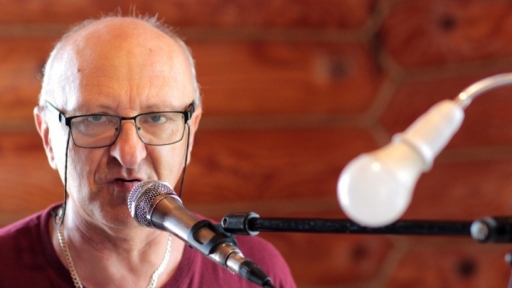Photo: A nurse who nightmares every night because she turns off the lung ventilation equipment for people who are still alive
Could you turn off the life support device for a human?

Switching off ventilators is part of nurses Juanita Nittla's job. She's a chief nurse in the intensive care unit at London's Royal Free Hospital, and has been working for the NHS as an intensive care specialist nurse for the past 16 years.
The work is traumatic and painful, the 42-year-old says. "Sometimes I feel like I am somewhat responsible for someone's death." Ventilators take over the body's breathing process when coronavirus has caused the lungs to fail. This gives the patient time to fight off the infection and recover, but sometimes it's not enough.
Medical teams face tough decisions about when to stop treatment for patients who aren't getting better. The decision is made after careful consideration, analysing factors such as the age of the patient, underlying health conditions, their response to the virus and likelihood of recovery.
Ms Nittla placed a phone next to the patient's ear, and asked her daughter to speak. Ms Nittla played the music the family had requested. Then she switched the ventilator off. "I sat beside her, holding her hands until she passed away," she says. The patient died less than five minutes after Ms Nittla turned off the ventilator.
"I saw flashing lights on the monitor and the heart rate hit zero - flat line - on the screen," she says. Ms Nittla disconnected the tubes providing sedation drugs. "With the help of a colleague, I gave her a bed bath and wrapped her in a white shroud and placed her in a body bag. I put a sign of the cross on her forehead before closing the bag," she says.
"I do have nightmares. I am unable to sleep. I worry I will get the virus. Everyone is scared," says Ms Nittla.

Masāžas paraugdemonstrējumi! Konkursi skropstu un uzacu meistariem, frizieriem, stilistiem, vizāžistiem, bārddziņiem - Baltic Beauty 2025 (4)

RIGA COMM Ķīpsalā! 3000 dažādu nozaru profesionāļi. Digitālie risinājumi, lai izglītotos, tīklotos un izveidotu jaunus, noderīgus kontaktus (4)

200 dalībnieku no dažādām valstīm! TOP 7 iedvesmai – kas noteikti jāredz interjera, dizaina izstādē Riga Furniture Interior 2025 (2)

Īpaši mīļi un sirsnīgi! Mūziķis Ainārs Ašaks pēc māmiņas došanās mūžībā izsaka emocionālu pateicību NMPD Valmieras brigādei (24)

Negaidīti mūžībā devies Latvijas TV skatītāju iemīļotais eksperts Aigars Freimanis (2)

 lmss.lv
lmss.lv





